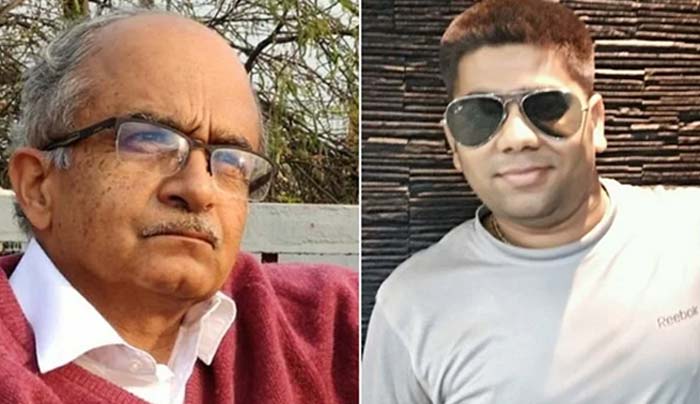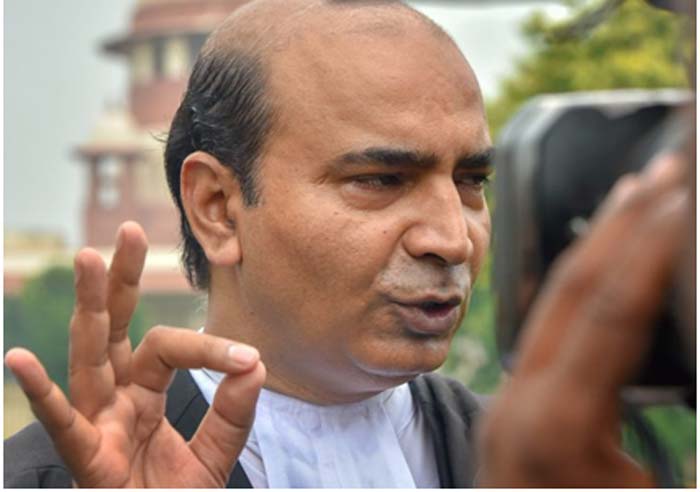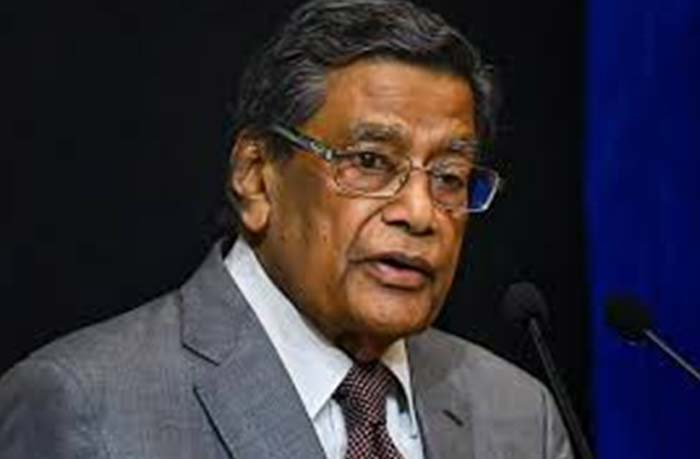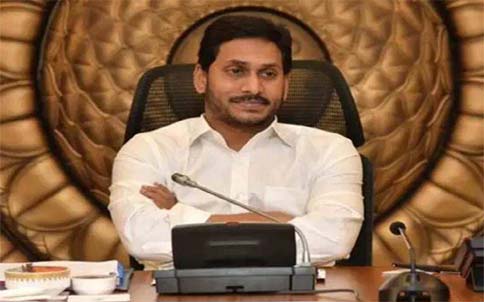- Attorney General pushes case to court of CJI
The response of the Attorney General of India Mr K. K. Venugopal to the petition of Mr Ashwini Kumar Upadhyay, Supreme Court Advocate who belong to BJP, not granting consent to prosecute AP chief minister for contempt of court, is very appropriate and is in due regard to the authority of the Chief Justice of India.
At the same time, he did not endorse the letter of chief minister and publicity given to it. Mr Venugopal found the statements in letter objectionable, its timing is suspect and prima facie, the conduct of CM and Principal Advisor to CM was contumacious. However, he felt it appropriate not to interfere as the CJI was seized of the matter. Entire basis of petition of Upadhyay is the ‘complaint’ of the chief minister, which is already placed before the CJI, hence the AGI thought not proper for him to initiate another proceeding.
What is Contempt of Court?
Section 2(c) says criminal contempt includes publication of anything that “(i) scandalises or tends to scandalise, or lowers or tends to lower the authority of, any court; or (ii) prejudices, or interferes or tends to interfere with, the due course of any judicial proceeding; or (iii) interferes or tends to interfere with, or obstructs or tends to obstruct, the administration of justice in any other manner”. Generally, the publication includes written or spoken words, signs or visible representations.
Spycatcher case adjudicated by the House of Lords in 1987 is a landmark on Contempt of court in the nation of its origin. “Spycatcher: The Candid Autobiography” of a Senior Intelligence Officer was written by Peter Wright, who worked for Britain’s MI5 intelligence service from 1955 to 1976. It was co-authored by Paul Greengrass. The court held the writing as contemptuous and issued several injunctions against the books. Though these orders were reversed after the Observer Media Group published excerpts from the book. But the court held it liable for the profits it made through the publication.
There are three methods of initiating contempt of court proceeding.
1. SC and HC can take up the case on its own motion,
2. On the motion of Attorney General of India
3. On the motion of any person with the consent of Attorney General of India.
One is the Constitution Courts can initiate action on their own against those who allegedly caused contempt of their courts. In this process, the courts invoke their inherent power. In recent case of Prashant Bhushan, the complaint was filed by Advocate Mehek Maheswari under Article 129 of Constitution invoking inherent powers of the Supreme Court. The court accepted it and took the case ‘suo motu’.

If the Attorney General thinks it is appropriate, he can also initiate a motion of contempt of court before the Constitutional Courts.
Another method is filing a complaint under Contempt of Court Act 1971 by any person. Unless the consent is obtained from the Attorney General, none can initiate contempt of court proceedings in Supreme Court, according to Contempt of Court Act. If any person wants to proceed before High Court under this Act, he should seek consent of the Advocate General. These methods of initiation are explained in Section 15 of Contempt of Court Act 1971, which says:
Cognizance of criminal contempt in other cases (1) In the case of a criminal contempt, other than a contempt referred to in Section 14, the Supreme Court or the High Court may take action on its own motion or on a motion made by (a) the Advocate-General, or (b) any other person, with the consent in writing of the Advocate-General, in relation to the High Court for the Union territory of Delhi, such Law Officer as the Central Government may, by notification in the Official Gazette, specify in this behalf, or any other person, with the consent in writing of such Law Officer.
As per the Explanation in this Act, the expression Attorney General may include the Solicitor General also. With reference to any other state, it is Advocate General of India.
Liberal view of British Judges
There was an interesting incident on initiating the proceedings against criticism. The British newspaper ‘Daily Mirror’ published an upside-down picture of three law Lords with the caption, “You Old Fools”. British judge Lord Sydney Templeman was approached by advocates requesting to initiate contempt proceedings. He refused saying that he was indeed old and whether he was a fool was a matter of perception, though he personally thought he was not one. The British judges took a very liberal view of the contempt law and gradually declined to imprison the contemnors so called. They now prefer to use the law only for enforcement of judgments but not to protect the judges from criticism under the traditional head of ‘scandalous’ contempt.
The AP CM’s letter
Earlier, alleging nexus and lack of objectivity in judiciary, the AP CM had requested the CJI to look into the matter and consider initiating steps “as may be considered fit and proper to ensure that the state judiciary’s neutrality is maintained”. The chief minister had alleged that the senior apex court judge had proximity to TDP chief Chandrababu Naidu and that a “former judge of the honourable Supreme Court placed this fact on record”.
BJP leader and lawyer Ashwini Upadhyay had written to AGI K.K. Venugopal seeking his consent to initiate contempt proceedings against Reddy and his advisor. He wrote that the letter by the Andhra Pradesh chief minister “scandalises” the authority of both the Supreme Court and the High Court and interferes with judicial proceedings and the administration of justice. Upadhyay reminded that “there are 31 criminal cases pending against the chief minister, with charge-sheets”.
As per existing laws the charge-sheeted accused are not prohibited from contesting. It is considered that they have freedom to contest until they are convicted in a crime and punished. No political party is willing to change the law to prevent criminally accused from contesting and does not want to refrain from fielding criminals in the election.
Who is Upadhyay?
Ashwini Kumar Upadhyaya has filed PILs on issues that are on top of his party’s agenda — such as yoga, Vande Mataram and nikah halala. He also filed a PIL in the Supreme Court challenging the constitutional validity of Article 370 of the Constitution. It is significant to note that in 2016, same petitioner Ashwini Kumar Upadhyay, had filed a PIL before Supreme Court, seeking to set up special courts to decide criminal cases involving legislators in one year, so that convicted persons are barred from contesting elections.
On September 16, a bench headed by Justice Ramana had asked High Court Chief Justices to constitute a special bench to monitor the progress of trial of criminal cases against sitting and former legislators, “forthwith” list all such cases which have been stayed, and decide whether the stay should continue or not. Interestingly a case of disproportionate assets against Jagan has commenced before the CBI special court in Hyderabad in pursuance of the Supreme Courts direction, on October 9, and very next day, the CM’s Principal Advisor released the controversial letter of Jagan dated October 6 to the CJI to the media. In that letter it was alleged that Justice Ramana “has been influencing the sittings of the (Andhra Pradesh) High Court including the roster of few Honourable Judges”.

Upadhyay, further said, “Even worse, if this kind of precedent were allowed, political leaders would start making reckless allegations against judges who do not decide cases in their favour and this trend would soon spell the death knell of an independent judiciary. “I am therefore seeking your kind consent under Section 15(1)(b) of the Contempt of Courts Act, 1971 read with Rule 3 of the Rules to Regulate Proceedings for Contempt of the Supreme Court, 1975 to initiate criminal contempt against Y S Jagan Mohan Reddy, Chief Minister of Andhra Pradesh and Shri Ajeya Kallam, Principal Advisor of the Government of Andhra Pradesh.”
Upadhyay claimed that the actions of these two individuals constitute grave criminal contempt of the Supreme Court of India and the High Court of Andhra Pradesh. As Jagan’s letter was in public domain for around two weeks but the Supreme Court did not initiate any action, Upadhyay stated that he took up to issue.
AG: A Constitutional Office
Attorney General of India is a constitutional office who is expected to exercise his discretion in considering request for consent. If he declines, the proceedings will not take off. When he is considering such application, either Attorney General of India or the Advocate General of State will not act as advocate on behalf of the Union or State, respectively. Hence the decision on such petition is not the opinion expressed by Attorney General and also it cannot be considered as the instruction of the government also.

The present attorney general of India is an expert of the Constitutional Law and a statesman. Prime Minister Narendra Modi appointed Venugopal at the age of 88 years as Attorney General on 30th June 2017. As per the designation, he is the first advocate of India. Well-read, highly experienced nonagenarian attorney Mr K.K. Venugopal has started his practice in 1960s. He is awarded both Padma Vibhushan and Padma Bhushan.
Contumacious conduct
The Attorney General said he was of the opinion that “the timing itself of the letter, as well as its being placed in the public domain through a press conference could certainly be said to be suspect, in the background of the order passed by Justice NV Ramana dated September 16, 2020 directing pending prosecution of elected representatives to be taken up and disposed of expeditiously”. Mr Venugopal described conduct of Jagan Mohan Reddy’ and his advisor as “prima facie contumacious”. The word contumacious means stubbornly or wilfully disobedient to authority. Indeed, a very serious comment. He also found their act of placing the allegations against judiciary in public domain as objectionable. Finally, the Attorney General declined consent to initiate contempt proceedings against them saying CJI SA Bobde “seized of the matter”. Nowhere the AG has said that these acts would amount to ‘contempt of court’, though he found them objectionable and disobedient to authority.
Does not mean clean certificate to Jagan
Another important point to be noted at this stage is that declining consent does not mean a clean certificate to Jagan Mohan Reddy or Ajay Kallam, and vice versa. The comment that timing of writing the complaint in the wake of the SC Bench’s order for speedy trial of criminal cases where political leaders were charged, “In this background, prima facie, the conduct of the said persons is contumacious. However, what has to be noted is that the entire case of contempt arises out of the letter dated 6.10.2020 written by the chief minister directly to the Chief Justice of India and the subsequent press conference held by Shri Kallam. The Chief Justice of India is, therefore, seized of the matter, Hence, it would not be appropriate for me to deal with the matter. For these reasons I decline consent to initiate proceedings for criminal contempt of Supreme Court of India”, Venugopal said.
An appropriate decision by AG
Despite all these significant factors behind the letter of Upadhyah, it was appropriate for the Attorney General not to give consent to contempt proceedings. It has several reasons. First, AP CM’s letter is basically a representation and request. It may also be considered as a complaint because of serious allegations mentioned therein. The theme and scheme of our Constitutional system and the mechanism devised by Hon’ble Supreme Court has provided for examining or testing veracity of the allegations written in any complaint. At this stage there is no scope for believing the allegations made against the Hon’ble Judge of Supreme Court Shri Justice N V Ramana, and it will in no way obstruct his elevation to Chief Justice of India position as per the seniority according to Constitution or Constitutional conventions. In fact, the people and the stake holders of judiciary should be interested in getting his name cleared out of these allegations and believe that these complaints cannot cause any harm to the credibility of Judiciary and enormous belief reposed by people in the institution of the Supreme Court. It is believed that the Honourable Chief Justice of India, to whom AP Chief Minister made the mentioned complaint recently, will have a free hand and reasonable time to consider the same and act in his own discretion, as per the process adopted by the Supreme Court in 1999 and announced in 2015. At this point of time, any activity like initiating contempt proceedings against the AP CM and his advisor might cause obstruction in that process. Our Rule of Law based Constitution, and the mechanism of the Supreme Court envisages due consideration and after that, if needed, due hearing of Complaints. Such a process would help the Honourable Judge to come out of the allegations with due dignity.
Second, prosecuting for punishing a complainant for contempt of court, before verifying allegations made in the Complaint is not proper, not reasonable, and not justified.
Third, the law of Contempt of Court should only be used for effective implementation and compliance of the judgements of the Supreme Court and other courts and not for filing a complaint against a Judge. Instead of examining the complaint, if the complainant is prosecuted, it might send a wrong message across the nation that extra ordinary power of the Courts was used to suppress the complaints.
Fourth, the request for consent is filed by a respectful advocate of Supreme Court. But he is also a leader of the ruling political party. The complaint is filed by AP Chief Minister, who is president of a political party. The BJP is ruling at the Centre leading a coalition with more than absolute majority for a second term. The Telugu Desham Party which fought elections in 2014 as an ally of BJP and partner of NDA has come to power in AP in 2014 and for some years the TDP shared the power at the Centre with the BJP. Hence acting on the petition by a BJP leader will give political colour to this episode and accepting such request may not be viewed with required political neutrality and objectivity.
As the request has come from a BJP leader, either acceptance or rejection of such request might lead to several interpretations and speculations which could undermine the dignity of Judiciary. However, the petitioner has every right to file such a petition. But accepting such a request would be more harmful than the harm that might be caused by rejection. In these circumstances the Attorney General has reposed confidence in the discretionary powers of CJI and left it to him to decide on the letter which is placed before him.




